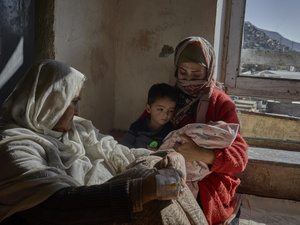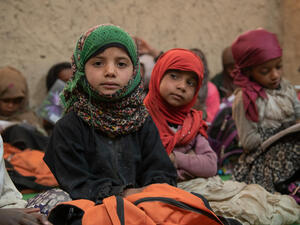Liberia: End of UNHCR's involvement in IDP return programme
Liberia: End of UNHCR's involvement in IDP return programme
In Liberia yesterday (Thursday), we marked the completion of UNHCR's involvement with the return of some 314,000 internally displaced persons to their areas of origin. They had been living in camps mainly around the capital, Monrovia, during the more than decade-long Liberian conflict. A ceremony was held at the former Salala camp for internally displaced people (IDPs) in western Liberia.
UNHCR, whose work normally focuses on protection and assistance to refugees who have crossed international borders, officially started its work with internally displaced people living in refugee-like conditions in Liberian camps in November 2004. Out of the 22 camps and 13 spontaneous settlements for IDPs, 22 have been now closed by the Liberian government.
Working alongside other UN agencies, we provided Liberia's IDPs with protection assistance, return packages and a transport allowance to enable them to return home. The return packages included non-food items like blankets, sleeping mats, plastic sheets, kitchen sets, lanterns and sanitary kits. Most IDPs returned to rebuild their lives in some of the worst, war-affected areas of Lofa, Bong and Bomi counties, in northern and western Liberia.
In December, UNHCR appealed for an additional US$13.7 million as part of the Liberian Humanitarian Appeal to enable us to continue into 2006 protection, assistance and reintegration activities such as community-based recovery programmes for former IDPs, returnees and the local population. So far we have received $5.1 million. From November 2004 - April 2006 UNHCR has spent over $24 million assisting IDPs in Liberia.
A UN inter-agency camp assessment is currently underway to determine the numbers and identify protection concerns of the residual caseload, especially the vulnerable - and to assess the environmental impact IDP camps in specific areas. We will continue to be involved in this phase.
Liberia is one of three IDP pilot projects - together with Uganda and the Democratic Republic of the Congo - under the so-called UN 'cluster approach' in which individual agencies are given responsibility for specific humanitarian sectors. UNHCR is assigned responsibility for protection, camp management and shelter under the new approach.









